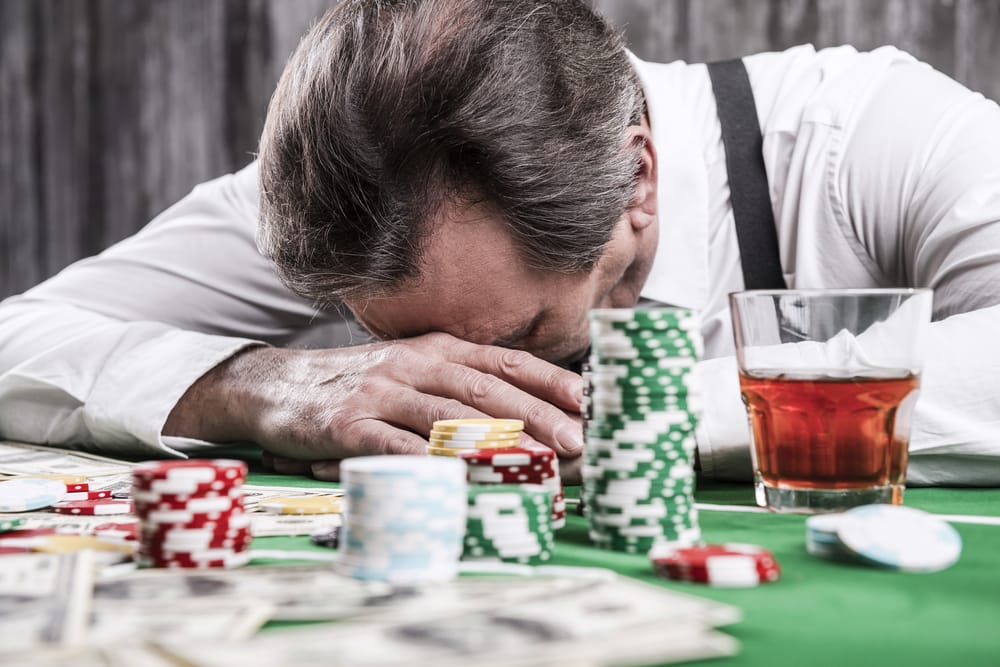Addiction Treatment
Do You Have A Gambling Problem?

Written By:

Table of Contents
Obsessive gambling is a behavioral disorder that spans a spectrum from occasional episodes of excessive gambling through full gambling addiction. Individuals who suffer from this disorder will exhibit the same dopamine reward response that is experienced by individuals with substance addiction. This includes withdrawal symptoms that may not be as severe as withdrawal from addictive drugs, but that are nonetheless disruptive and that have a capability of pushing a gambling addict back to his destructive behavioral patterns.
Gambling Addiction
Gambling addictions are characterized by numerous different symptoms. Gambling addicts will generally be obsessed with a particular activity, such as playing the lottery or visiting casinos to get instantaneous feedback from lights and bells on slot machines. They will place a priority on gambling over all other activities, including job and family responsibilities. They often divert funds to their gambling activities that should be used for food and shelter for themselves and their families. When their addiction sets in even deeper, they may begin to steal to support their gambling habit. Like substance addicts, gambling addicts will deny that they have a problem and lie to themselves and others about the extent of their involvement in gambling activities.Individuals who have a gambling problem do not necessarily gamble every day. They can go for long stretches without gambling, but when an opportunity to gamble presents itself, they might lose all control over their actions. When they stop gambling, they can experience typical addiction withdrawal symptoms, including depression or irritability, as well as physical symptoms such as headaches. Some obsessive gamblers use gambling as a coping mechanism for stress or other external difficulties, and when removed from gambling, they might respond negatively to the adverse effects of those difficulties.
Treating Gambling Problems
Counselors who treat gambling problems use a similar set of coping tools and behavioral therapy that would be used to treat substance addictions. If obsessive gambling is a symptom of a deeper psychological disorder, a therapist might prescribe antidepressants or other medications to treat that disorder. Behavioral therapy will include counseling that teaches a gambling addict to turn to alternative activities when the urge to gamble strikes. Financial and debt counseling will also help a gambling addict to better comprehend how his gambling is affecting his and his family’s financial well-being. Gambling addicts and compulsive gamblers have greater opportunities to gamble due to the growth of casino gambling in the United States, but that growth has also given rise to numerous support groups to help those individuals to control their gambling. Gambling addiction group support therapy will follow a path that is similar to drug addiction group support, with analogous twelve-step programs and direct connections to other gamblers who can be relied upon to help an individual who experiences strong urges to gamble. Often, those urges will subside if a compulsive gambler simply delays his attempts to gratify them. A connection to a support group will give the gambler a support system to reach out to when that support is needed.
An individual who is concerned over his obsessive gambling should not be reluctant to discuss those concerns. Gambling disorders are genuine psychological problems that are recognized and acknowledged by the Diagnostic and Statistical Manual of Mental Disorders (the “DSM”). If you have questions or concerns about your own gambling activities, please contact the Last Resort Recovery Center near Austin, Texas, at 512-360-3600. We can provide confidential counseling to determine the extent of your gambling problem, if any, and recommend treatment options that will help you to overcome that problem.
